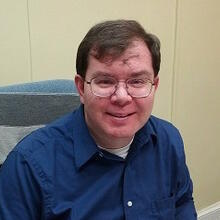What should have been a day of rejoicing turned into a long night of grief. On the morning of on Jan. 28, 1986, the space shuttle Challenger exploded shortly after liftoff from Cape Canaveral at 11:38 a..m., and all seven members of the crew were killed.
An expectant crowd of spectators with their cameras were present on that cold, frigid morning, ready and eager to record an historical event. The liftoff went smoothly; everyone expected to witness something that they would remember and talk about for the rest of their lives.
In mere seconds, it all went wrong, horribly wrong. The spectators didn’t know it at the time, though the engineers and space personnel did, when Challenger pilot Michael Smith was heard by Mission Control to utter: “uh…oh!” Then all communications ceased.
Before long, the spectators began to realize that they were witnesses to a disaster of the greatest magnitude. The parents and sister of one of the astronauts, Christa McAuliffe, who was selected to be the first “teacher in space,” were among those gathered. Like everyone else present that day, they looked up at the sky and uncomprehendingly viewed the panorama of death and destruction: the explosion and the fiery trail of fire. And the rest of the country were present too, through their televisions, all united in sorrow at what they saw.
President Ronald Reagan was due that evening to go to the Capitol and appear before a joint session of Congress to deliver his State of the Union address to the nation. He and his advisors had been working on the speech, but when the news came about Challenger, the address was canceled. On that day, the president had to put aside his role as Commander in Chief and assume the mantle of Consoler in Chief. With an address hurriedly written by speechwriter/aide Peggy Noonan, President Reagan addressed a stunned nation from his desk in the Oval Office.
He began by saying: “Ladies and gentlemen, I’d planned to speak to you tonight to report on the state of the Union, but the events of earlier today have led me to change those plans. Today is a day for mourning and remembering…” The president alluded to the fact that the Challenger explosion happened on the anniversary of another space tragedy some 18 years earlier, only that it occurred on the ground and not in the skies. (He was referring to the fire that engulfed the space capsule that carried the Apollo I astronauts, Gus Grissom, Ed White and Roger Chaffee, on Jan. 27, 1967, which killed them.)
Two points made President Reagan’s address memorable and appropriate that evening. First, he wanted to reassure all the schoolchildren that had gathered to watch the launch that what happened was, as he put it, “part of the process of exploration and discovery. It’s all part of taking a chance and expanding man’s horizons.” He also said that “the future doesn’t belong to the fainthearted; it belongs to the brave. The Challenger crew was pulling us into the future, and we’ll continue to follow them…” Next, he stressed was that the United States would continue exploring space; he wanted everyone to know that such important work would continue, that “nothing ends here; our hopes and journeys continue.”
President Reagan ended his talk by quoting the memorable lines from the poem “High Flight,” by the aviator/poet John Gillespie Magee (who would himself perish in mid-air collision in 1941 at the age of 19), on how that morning, the seven astronauts “slipped the surly bonds of earth” to “touch the face of God.”
At the time of the tragedy, America, in an editorial entitled “An Ash Wednesday Meditation On Challenger’s Last Flight” (2/15/1986), quoted Henry David Thoreau when he said that “any valuable work is done at the expense of life.” America’s editors noted, “that is the case whether the work be heroic and public or ordinary and anonymous.” The editors also noted that for all our technological progress and advances in knowledge, the Challenger explosion was “an instructive reminder that the most sophisticated machines are eventually as perishable as man himself, for they are only extensions of those two great natural but finite tools, the mind and the hand.”
Today is the 30th anniversary of that sorrowful day when seven Challenger crew members perished in the heavens: Christa McAuliffe, Gregory Jarvis, Judy Resnik, Dick Scobee, Ronald McNair, Michael Smith and Ellison Onizuka. Today it is more than appropriate to not only to remember them, their lives, their dedication and their service, but also their families as well: as much as the astronauts themselves, the family members served the nation, too.
Thirty years ago the editors of America reflected on “those two great natural but finite tools, the mind and the hand,” tools which led them to work toward a great adventure, one which sadly went wrong. But there was something else that was implied, but left unsaid. There was another “great tool,” one which is never finite, but ever eternal: the heart. It was what these special seven people had and offered in abundance for their fellows. They knew that their work was dangerous; yet they were willing to “pull toward the future” on our behalf. They were brave and they were generous, and only an unfeeling heart could fail to grieve for them all these years later.








